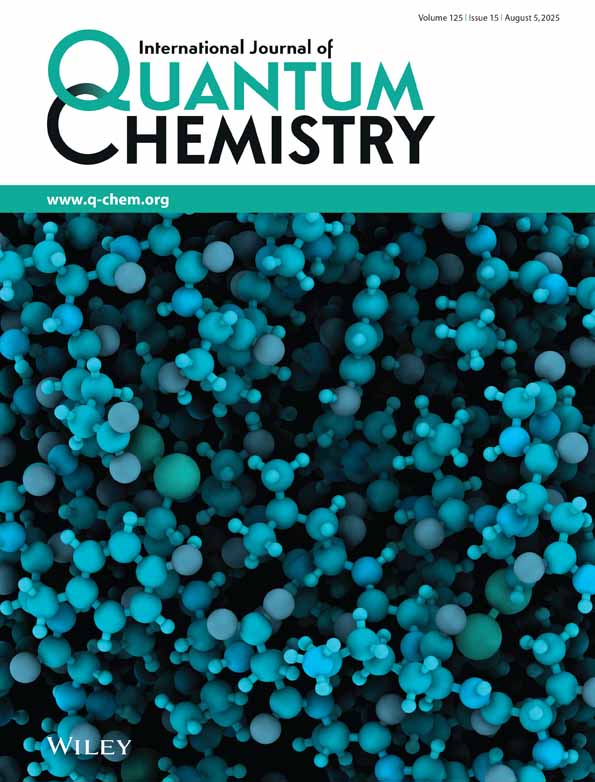Solvent effects on the relative stability of radicals derived from artemisinin: DFT study using the PCM/COSMO approach
Abstract
The PCM/COSMO approach was employed to calculate the relative stability of radicals derived from the antimalarial artemisinin. The calculations were performed in polar (water) and apolar (THF) solvent at the density functional level [B3LYP/6-31g(d)]. Relative stabilities were calculated by means of isodesmic equations using artemisinin as reference. Replacement of oxygen atoms by CH2 unities was found to decrease the relative stability of the anionic radical intermediates. The degree of destabilization is reduced in the presence of solvent, being less in water than in THF. The dipole moment and the corresponding solvation free energies of these species modulate this effect. Derivatives with inverted stereochemistry are more stable than those with the artemisinin-like stereochemistry, although the solvent attenuates this stabilization effect. As was found in the in vacuo calculations, the radicals centered on carbon are always more stable than the corresponding radicals centered on oxygen. © 2006 Wiley Periodicals, Inc. Int J Quantum Chem, 2006




